Derry: A City Woven into the Fabric of Ireland
Related Articles: Derry: A City Woven into the Fabric of Ireland
Introduction
In this auspicious occasion, we are delighted to delve into the intriguing topic related to Derry: A City Woven into the Fabric of Ireland. Let’s weave interesting information and offer fresh perspectives to the readers.
Table of Content
Derry: A City Woven into the Fabric of Ireland
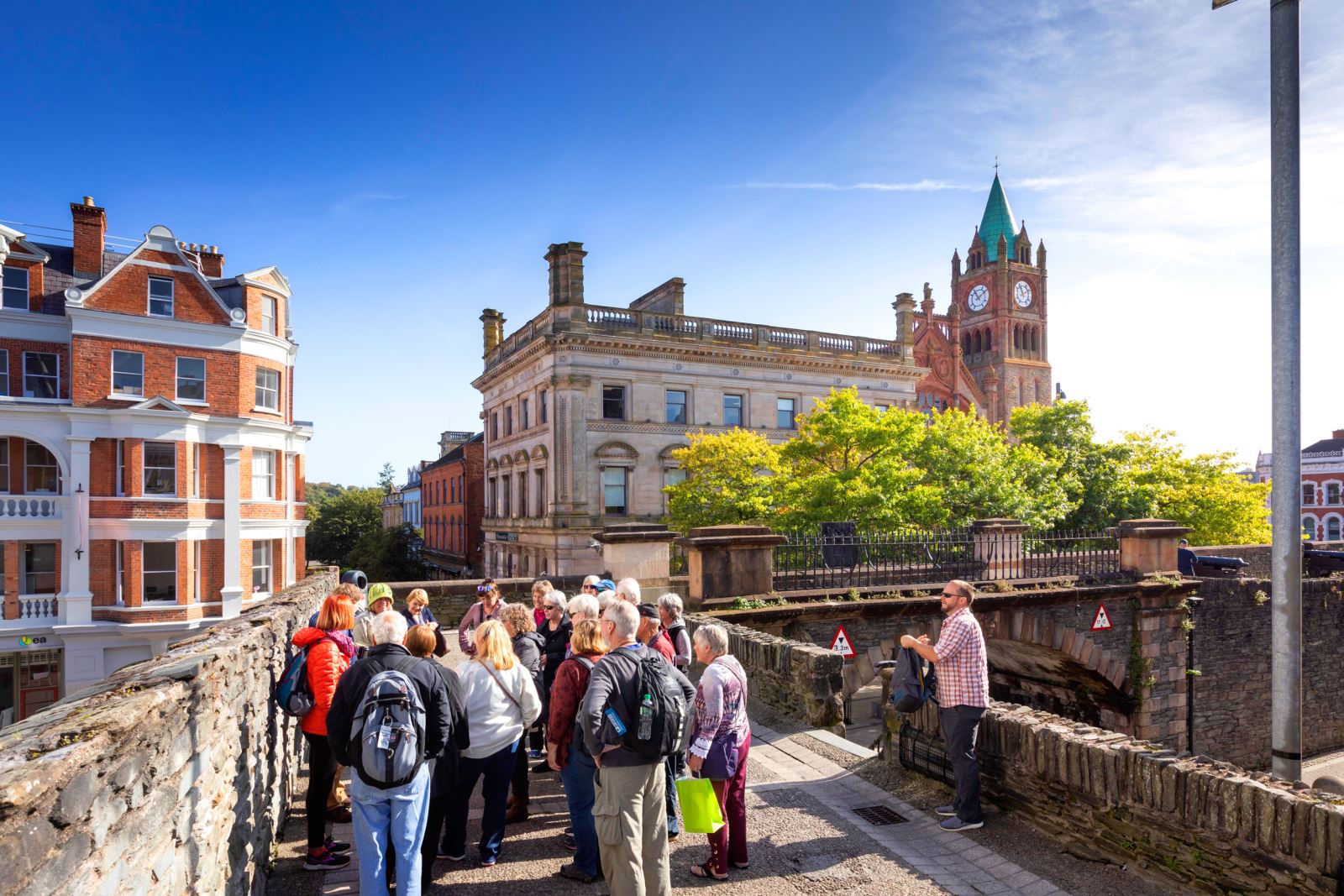
Derry, often referred to as Londonderry, is a city steeped in history and nestled in the northwest of Ireland. Its strategic location, nestled at the mouth of the River Foyle, has played a pivotal role in shaping its identity and its place in the wider Irish narrative. Understanding the city’s geography, its historical context, and its cultural significance requires a comprehensive exploration, a journey best undertaken with a map as a guide.
Navigating the City: A Geographical Overview
Derry’s physical landscape is characterized by its proximity to the Foyle Estuary, a wide expanse of water that connects the city to the Atlantic Ocean. This geographical feature has profoundly influenced the city’s development, creating a natural harbor that facilitated trade and maritime activity for centuries. The River Foyle itself flows through the city, dividing it into two distinct parts: the Cityside, located on the eastern bank, and the Waterside, situated on the western bank.
The city’s urban fabric is defined by its historic walls, a testament to its turbulent past. These walls, built in the 17th century, encircle the Cityside, offering a unique perspective on the city’s medieval heritage. Within these walls, visitors can explore a network of narrow streets, cobbled lanes, and historic buildings, providing a tangible connection to Derry’s rich history.
A Tapestry of History: Understanding Derry’s Past
Derry’s history is a complex tapestry woven from threads of conflict, resilience, and cultural dynamism. The city’s earliest roots can be traced back to the 1st century AD, when the Gaelic settlement of Doire Chólcaín (Oak Grove of Colcán) emerged on the site. This settlement, situated on the banks of the Foyle, thrived as a center of trade and culture for centuries.
The 17th century marked a pivotal period in Derry’s history. The Plantation of Ulster, a policy implemented by the English Crown, led to the establishment of a Protestant settlement within the city walls. This event sparked tensions between the native Irish Catholic population and the newly arrived Protestant colonists, setting the stage for the city’s tumultuous future.
The Siege of Derry in 1689, a pivotal event in Irish history, further solidified the city’s place in the national narrative. This siege, a stand against the forces of King James II, showcased the city’s resilience and its unwavering determination to resist oppression. The Siege of Derry is commemorated annually, serving as a reminder of the city’s enduring spirit and its enduring place in the collective memory of Ireland.
Beyond the Walls: Derry’s Cultural Landscape
Derry is a city that pulsates with a vibrant cultural energy. Beyond its historic walls, the city offers a wealth of cultural experiences, from museums and art galleries to theaters and music venues. The Museum of Free Derry, located in the Bogside, offers a compelling account of the city’s involvement in the Civil Rights Movement and the subsequent Troubles. The Tower Museum, housed in a 19th-century water tower, provides a comprehensive overview of the city’s history, from its earliest settlement to its modern-day evolution.
The city’s artistic landscape is equally diverse, with a thriving arts scene that encompasses everything from traditional Irish music to contemporary visual arts. The Millennium Forum, a state-of-the-art performing arts center, hosts a wide range of theatrical productions, musical performances, and cultural events throughout the year.
Derry: A City of Transformation
In recent decades, Derry has undergone a remarkable transformation, emerging as a dynamic city that embraces its past while forging a path towards a brighter future. The city has actively engaged in peacebuilding initiatives, fostering reconciliation and promoting understanding between its diverse communities. This commitment to peace and reconciliation has been recognized internationally, with Derry being awarded the title of "City of Culture" in 2013.
FAQs about Derry
Q: What is the best time to visit Derry?
A: Derry is a city that can be enjoyed year-round. The summer months (June-August) offer pleasant weather and extended daylight hours, ideal for exploring the city’s outdoor attractions. However, the city’s vibrant cultural scene thrives throughout the year, with festivals and events taking place year-round.
Q: How do I get around Derry?
A: Derry is a compact city that is easily navigable on foot. The city center, enclosed within the historic walls, can be explored on foot, offering a unique perspective on the city’s historic streets and architecture. For longer distances, public transportation is available, with bus services connecting different parts of the city.
Q: What are some must-see attractions in Derry?
A: Derry offers a wealth of attractions for visitors, each offering a unique glimpse into the city’s rich history and culture. Some must-see attractions include:
- The Walls of Derry: These historic walls offer a unique perspective on the city’s medieval heritage, providing a glimpse into the city’s past and its strategic importance.
- The Museum of Free Derry: This museum offers a compelling account of the city’s involvement in the Civil Rights Movement and the subsequent Troubles.
- The Tower Museum: This museum provides a comprehensive overview of the city’s history, from its earliest settlement to its modern-day evolution.
- The Millennium Forum: This state-of-the-art performing arts center hosts a wide range of theatrical productions, musical performances, and cultural events throughout the year.
Q: What are some tips for visiting Derry?
A: To make the most of your visit to Derry, consider the following tips:
- Plan your visit in advance: Derry offers a wealth of attractions, so it’s advisable to plan your itinerary in advance to ensure you have enough time to explore everything that interests you.
- Book your accommodation in advance: Derry is a popular tourist destination, especially during peak season. Booking your accommodation in advance will ensure you have a place to stay and avoid disappointment.
- Take a walking tour: Walking tours are a great way to get acquainted with the city’s history, architecture, and culture.
- Sample the local cuisine: Derry offers a diverse culinary scene, with a range of restaurants and cafes serving traditional Irish dishes and international cuisine.
- Engage with the local community: Derry is a city with a warm and welcoming atmosphere. Engaging with the local community will enhance your experience and provide a deeper understanding of the city’s character.
Conclusion
Derry is a city that defies easy categorization. It is a city of contrasts, a place where history and modernity intertwine, where tradition and innovation converge. Its story is one of resilience, a testament to the enduring spirit of its people. A map of Derry serves as a guide, not just to its physical landscape but also to its complex and compelling history, its vibrant culture, and its unwavering spirit. It is a city that invites exploration, a place where visitors can connect with the past, embrace the present, and envision a future filled with hope and promise.
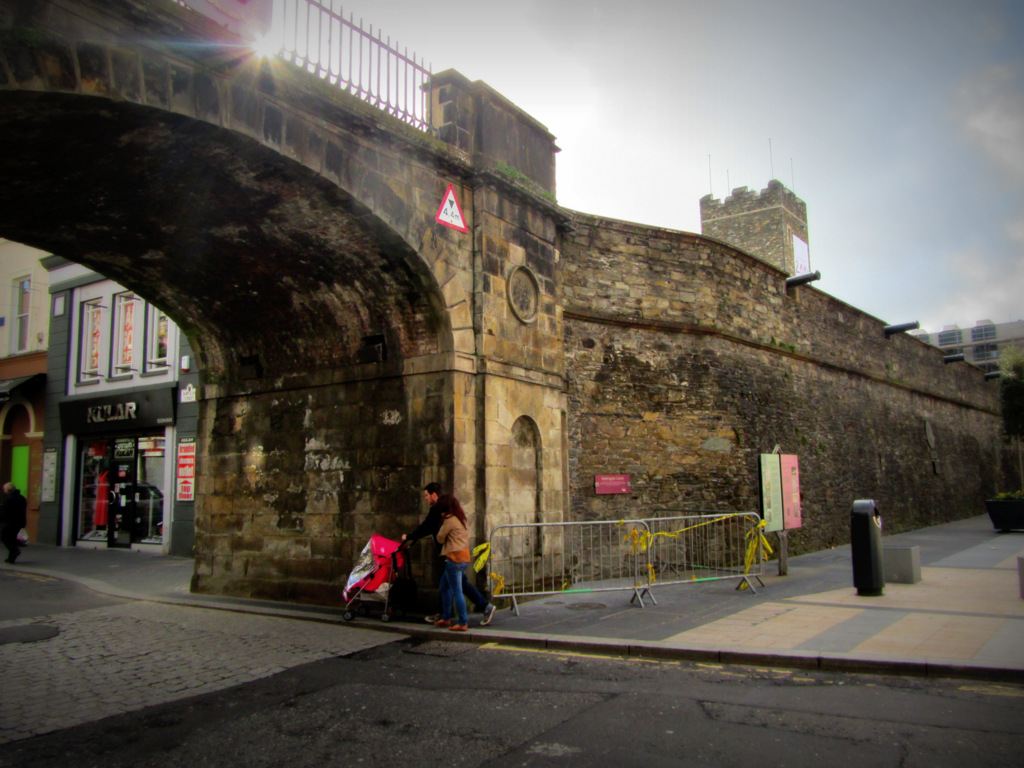
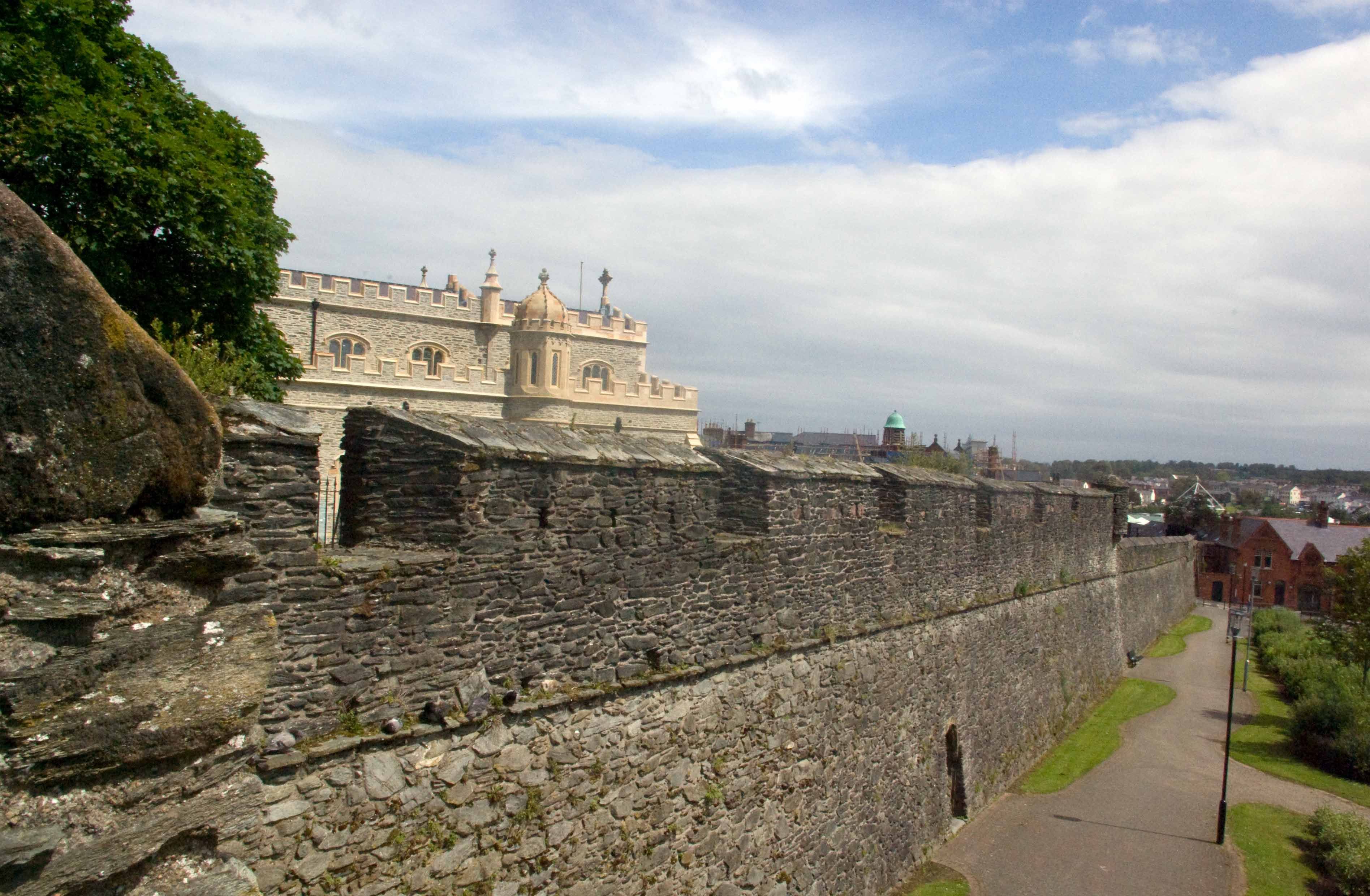
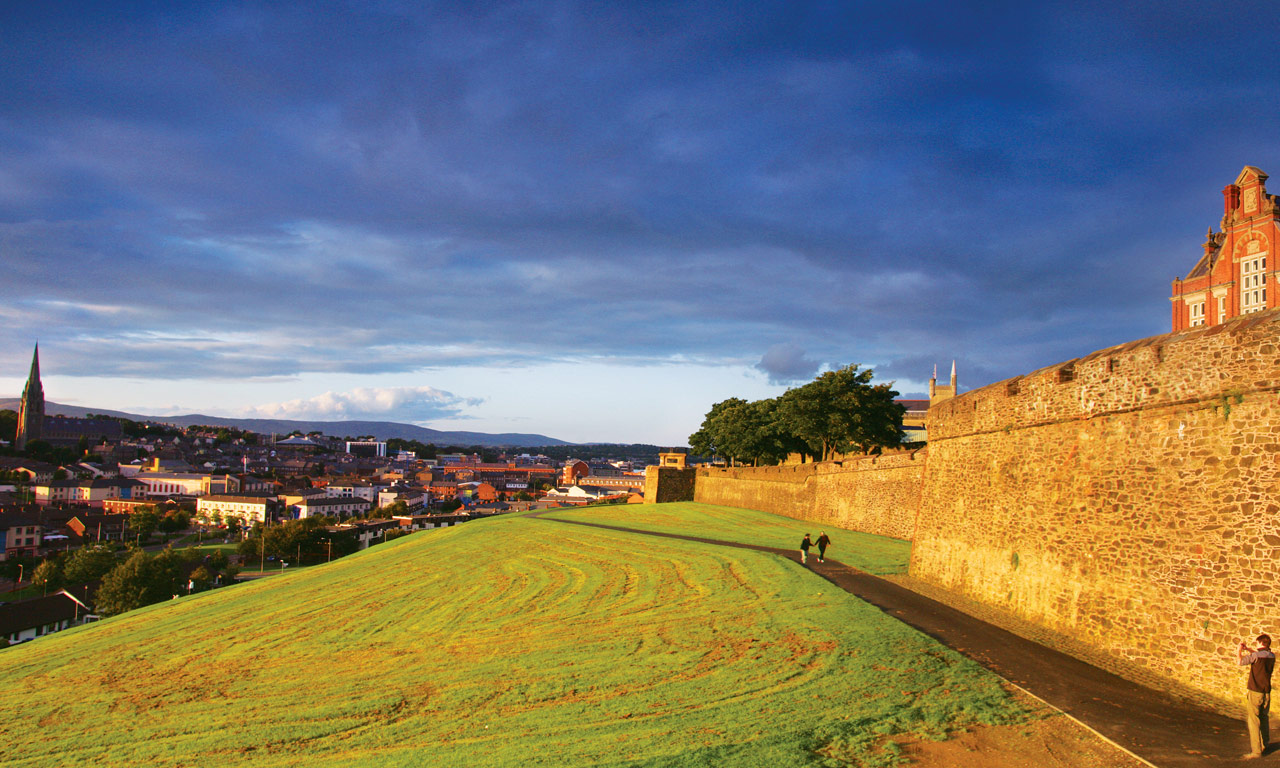


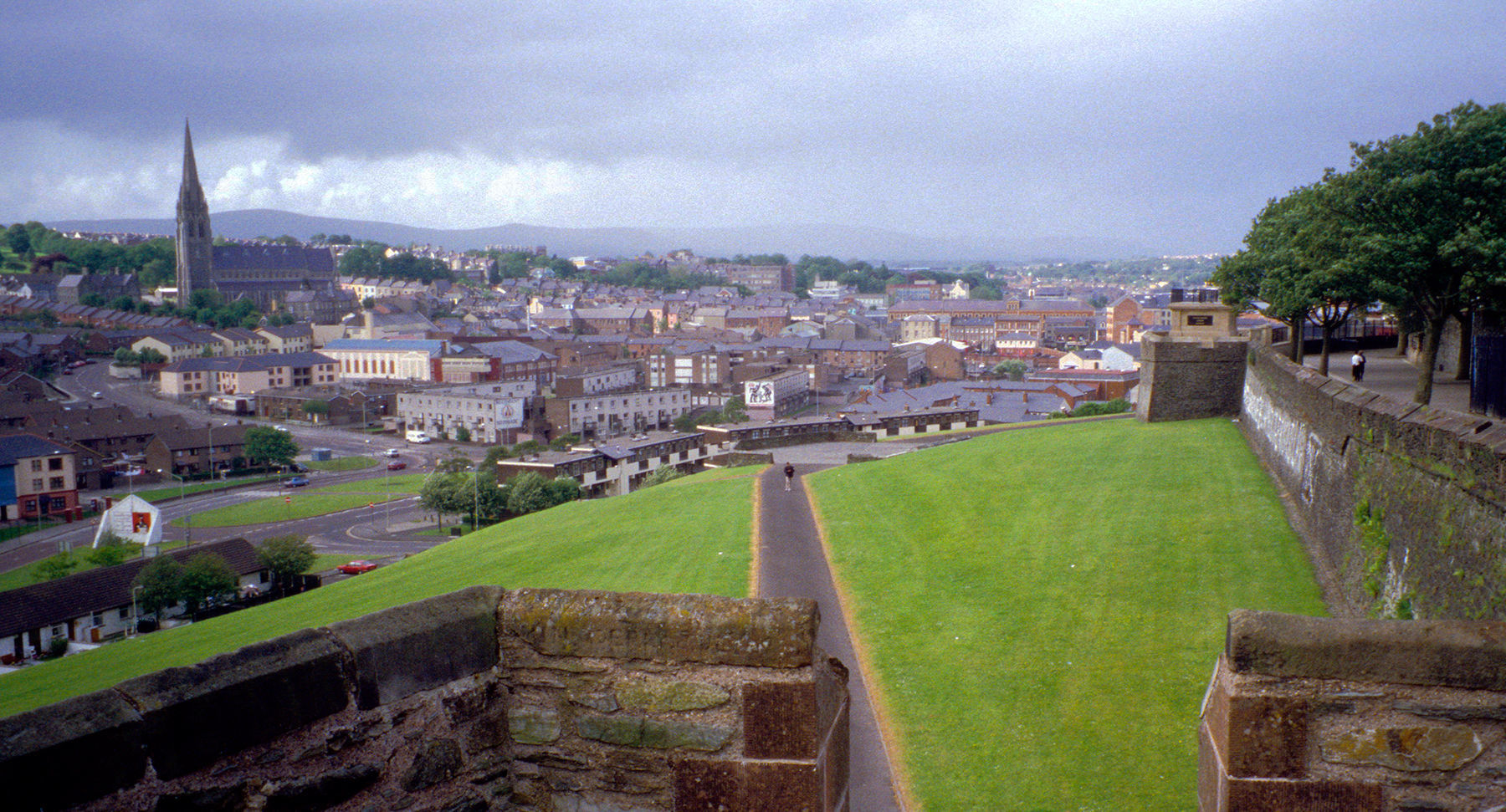
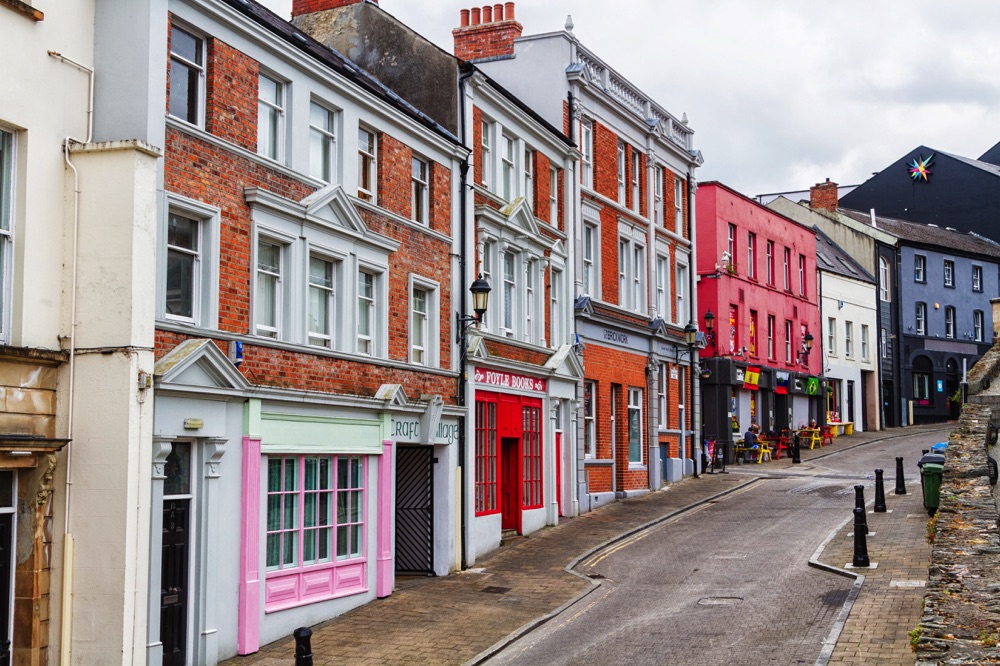
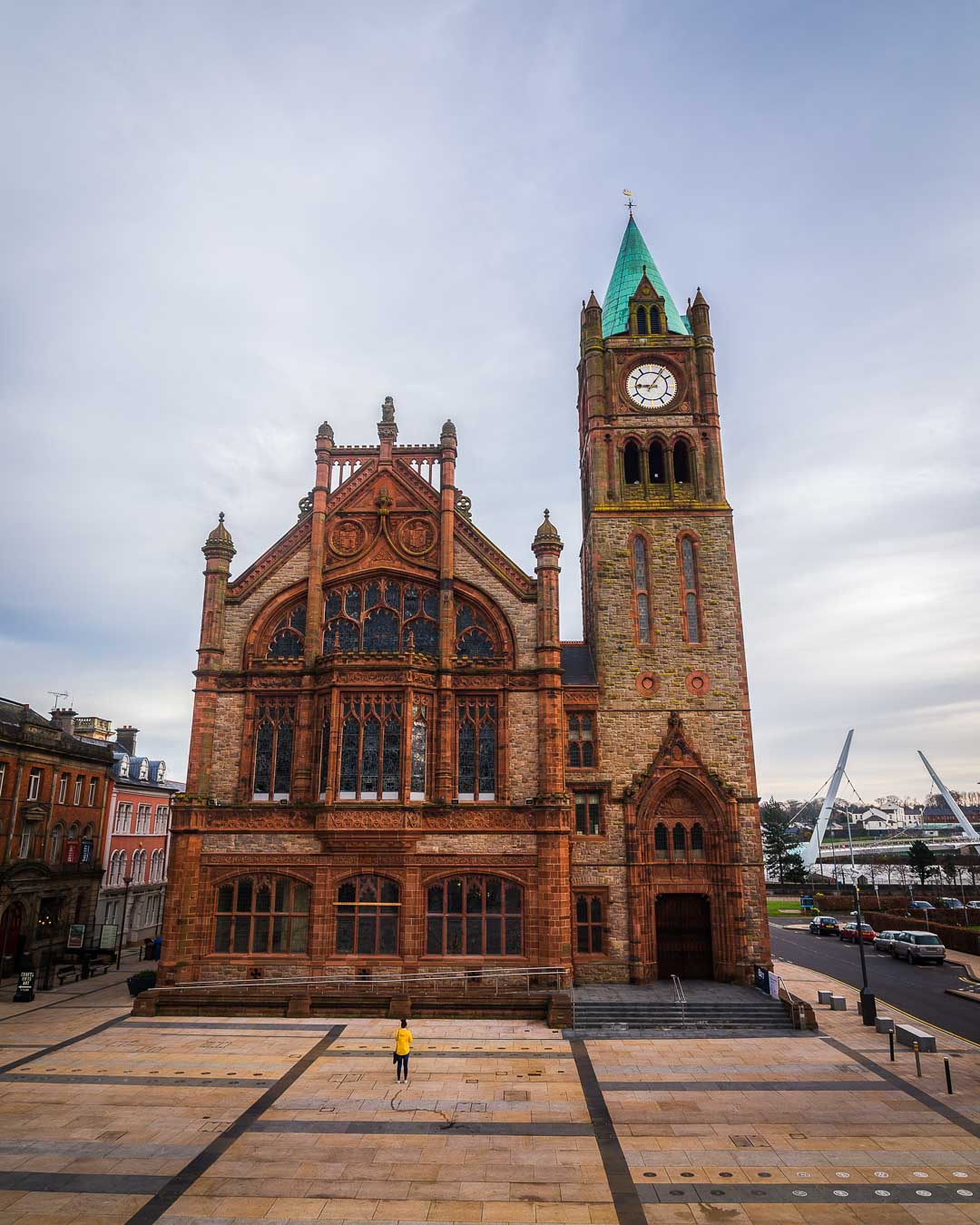
Closure
Thus, we hope this article has provided valuable insights into Derry: A City Woven into the Fabric of Ireland. We thank you for taking the time to read this article. See you in our next article!